Suicides and broken marriages: Israeli soldiers crumble under weight of war trauma
By Alireza Akbari
Amid the Israeli genocidal war on Gaza and Lebanon, reports suggest the occupation soldiers are grappling with significant “psychological distress” as a result of atrocities they have inflicted on Palestinians and Lebanese since October last year.
The Israeli regime launched its genocidal war on the Gaza Strip on October 7 last year and expanded the same war to Lebanon in September with both air raids and ground invasion.
In Lebanon though, the regime forces were unable to occupy even one village and faced stiff resistance from Hezbollah fighters, which eventually forced Benjamin Netanyahu to surrender in disgrace and announce a ceasefire deal late on Tuesday.
Faced with the acute shortage of personnel, the Netanyahu regime forced all settlers to join the war against their wishes with only 15 percent of reservists reporting for duty, as per Israeli media.
Amid this personnel crisis plaguing the Israeli military, the regime has opted to extend the mandatory military service of 350,000 reservists until the end of 2024, which hasn't gone down well with them.
As a result, at least 15 soldiers from the Paratroopers Brigade, who had completed their service in Deir al-Balah and Khan Younis areas of Gaza, turned down the call to return to duty recently.
As acknowledged by the Israeli media, the regime forces have been dealt heavy blows by resistance fighters with the death toll exceeding “800 soldiers,” leading to a growing sense of “war fatigue.”
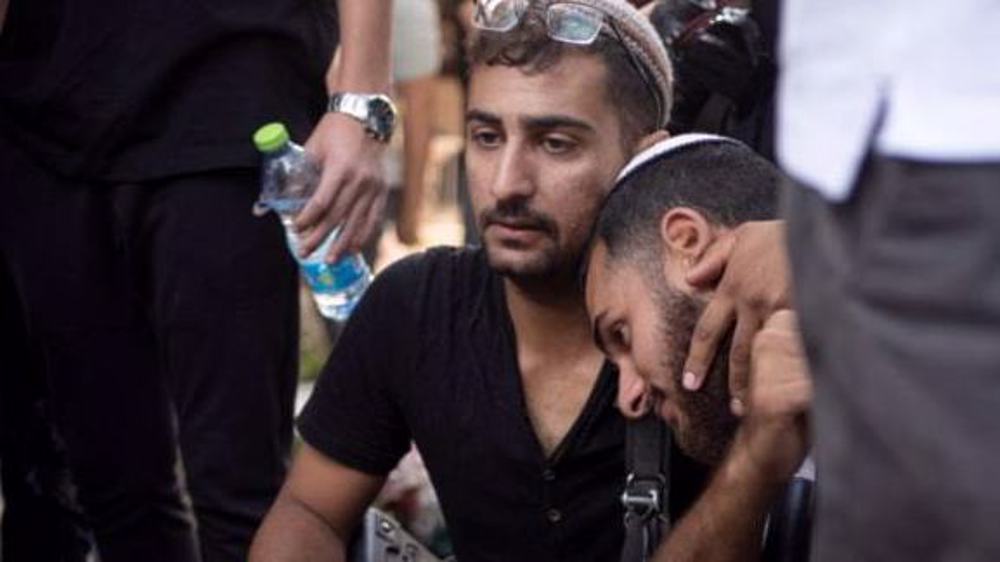
With Israel's campaign of ethnic cleansing in Gaza now into its 417th day, regime soldiers are increasingly reporting experiences of “war trauma, family issues, and psychological distress.”
A report published on October 24, 2024, by the Israeli newspaper Jerusalem Post highlighted the struggles of returning soldiers grappling with trauma and the risk of suicide, shedding light on the harrowing realities of post-traumatic stress disorder (PTSD) among Israeli soldiers.
The report focused on the case of Eliran Mizrahi, a 40-year-old D-9 bulldozer driver, who battled PTSD for six months after returning from the war in Gaza. where he was involved in diabolic war crimes.
Mizrahi ultimately took his own life just months before he was due to be “redeployed.”
His mother, Jenny Mizrahi, stated that her son got out of Gaza, but Gaza did not get out of him, pointing to the harrowing nightmares they got through for committing heinous crimes.
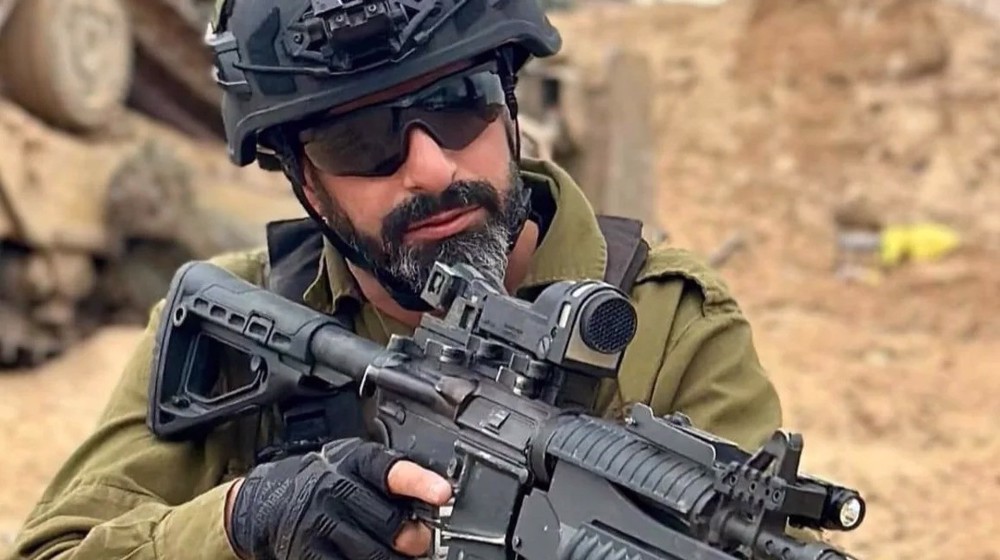
"He saw a lot of people die. Maybe he even killed someone. We don’t teach our children to do things like this… So, when he did something like this, maybe it was a shock for him," she was quoted as saying, noting the profound impact the war crimes had on him.
According to Mizrahi’s family members, he struggled with “bouts of anger and insomnia” following his return from Gaza where he witnessed the most gory war crimes committed by the regime forces.
Guy Zaken, a bulldozer driver, shared his challenges with CNN, revealing that he “no longer eats meat” due to his orders to “run over” people—describing the experience of killing “dead and alive in the hundreds.”
“When you see a lot of meat outside, and blood… both ours and theirs (Hamas), then it really affects you when you eat,” he was quoted as saying.
Mizrahi and Zaken's experiences reflect a broader crisis among Israeli soldiers, many of whom are suffering from similar mental health issues, some culminating in suicide.
The Israeli daily Yedioth Ahronoth reported on Friday that “six” more Israeli soldiers have committed suicide, underscoring the mental health challenges and psychological distress faced by Israeli troops amid the genocidal campaign in Gaza and Lebanon.

The report highlighted a deeper mental health crisis within the Israeli army, revealing that “thousands of soldiers” have sought assistance from military mental health clinics or field psychologists.
It also suggested that the actual number of suicides may be even “higher” than reported.
Reportedly, one-third of affected soldiers are displaying symptoms of PTSD, indicating that psychological trauma among Israeli troops could surpass the physical injuries sustained during the war.
Earlier in March, Lucian Tatsa-Laur, head of the Israeli military’s mental health department, spoke to Haaretz about the alarming state of psychological health within the ranks.
"The full extent of this mental health crisis will only become clear once military operations are completed, and troops return to normal life," he stated.
As mental health issues surge among Israeli occupation forces, the Israeli military affairs ministry's 'rehabilitation department" has reported receiving at least “12,000 soldiers” since the launch of the genocidal war in October 2023, including many diagnosed with PTSD.
According to a mid-May report from the department, approximately 43 percent of these soldiers are suffering from PTSD, while 14 percent have sustained moderate to severe injuries.
This includes 23 cases of severe head trauma, 60 amputations, and 12 soldiers who have permanently lost their eyesight.
The psychological impact of the prolonged war on Gaza has also affected the families of these soldiers. Yedioth Ahronoth quoted the wife of an Israeli reservist, who described the disturbing effects of her husband's mental state on their family.
“My husband tried to strangle me at night, and later I learned he was suffering from untreated war trauma,” she was quoted as saying.
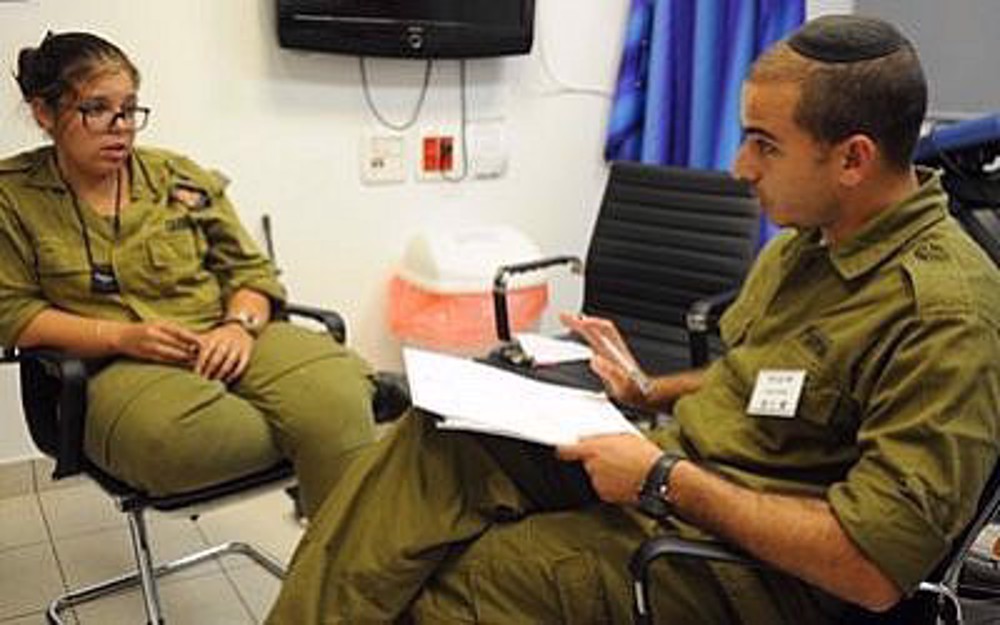
Another reservist’s wife echoed similar concerns, highlighting her husband's aggressive behavior upon returning home after being involved in the genocidal war against Palestinians.
“Every time he returns from service, he begins cursing and yelling at me. The last time, during sirens triggered by missiles from Lebanon, we got into an argument, and I lost control, throwing a glass cup at him,” she recounted.
Israeli reservists, who did not foresee the war extending this far or lasting this long, are grappling with further repercussions with many of them reporting strained marriages and spouses of many of them threatening divorce due to their prolonged absences.
Employers are also growing increasingly frustrated, while women who have become single mothers are forced to reduce their work hours to care for children, leading to cases of depression in them.
Jael Talshir, a political analyst at the Hebrew University, described the situation as a “breaking point” for the Israeli settler-colonial society.
“Whether it’s the economic crisis, the heavy toll on reservists and their families, or the casualties and injuries, Israeli society is certainly nearing the limit of its capacity,” she was quoted as saying.
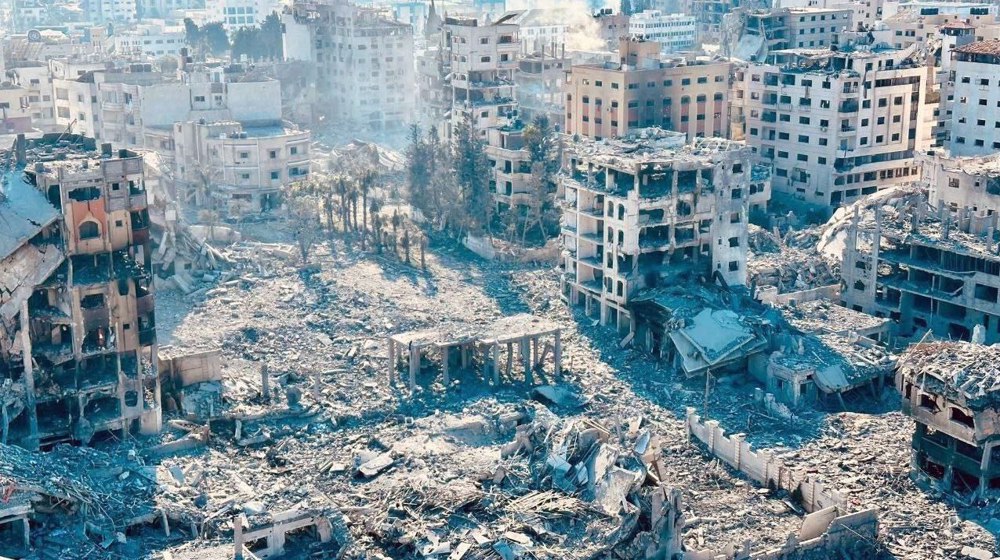
Israel rewards surrender with erasure: Lebanese analyst

Netanyahu says Qatar 'not an enemy state'
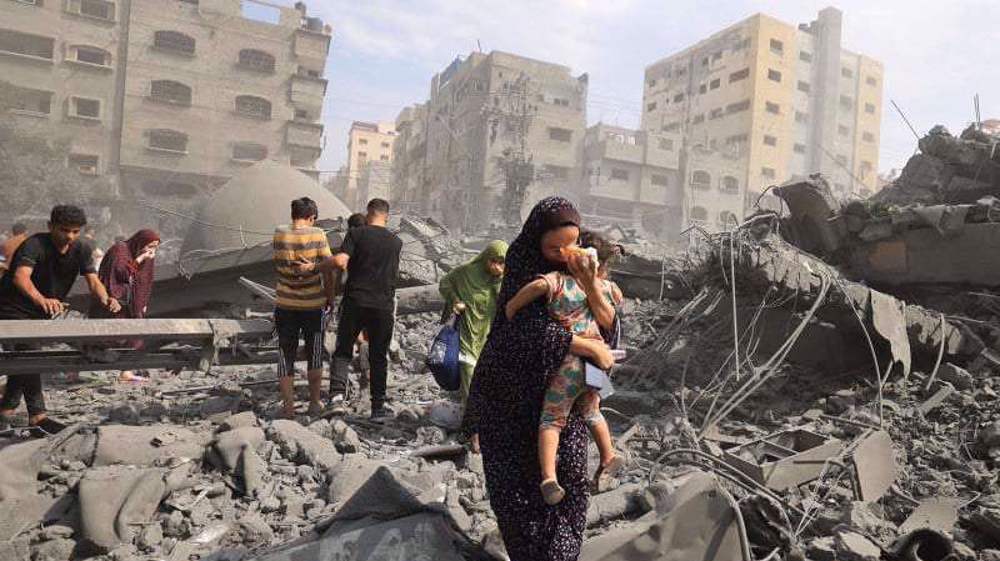
UN rights body demands Israel 'prevent genocide' in Gaza
VIDEO | Press TV's news headlines
VIDEO | Gaza's healthcare system collapsing amid ongoing siege
Yemeni army shoots down second advanced US MQ-9 drone in single week
Trump targeting Ukraine's mineral wealth
VIDEO | Israel confirms killing Syria’s HTS-led militants in attacks on military bases
VIDEO | The hunt for helium
Tel Aviv in shock as Trump imposes tariffs on all Israeli goods
VIDEO | Deadliest day in fortnight: Israel kills almost 80 Gazans in attacks on UN clinic, refugee sites







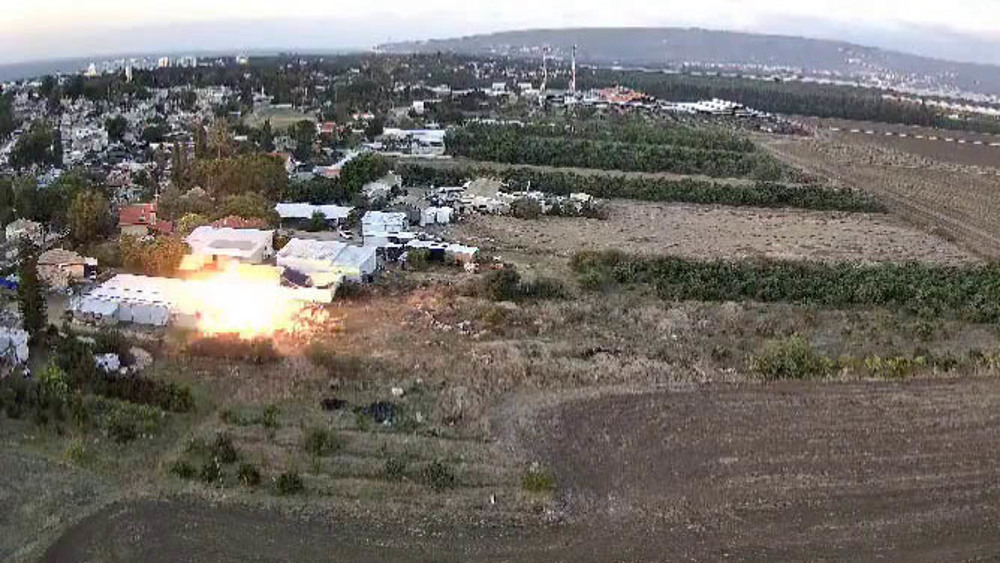
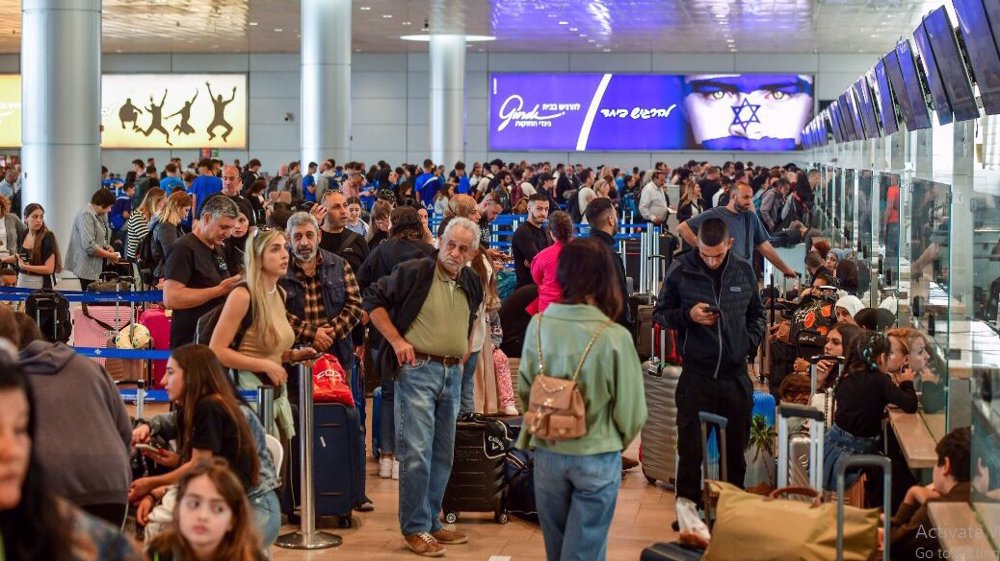
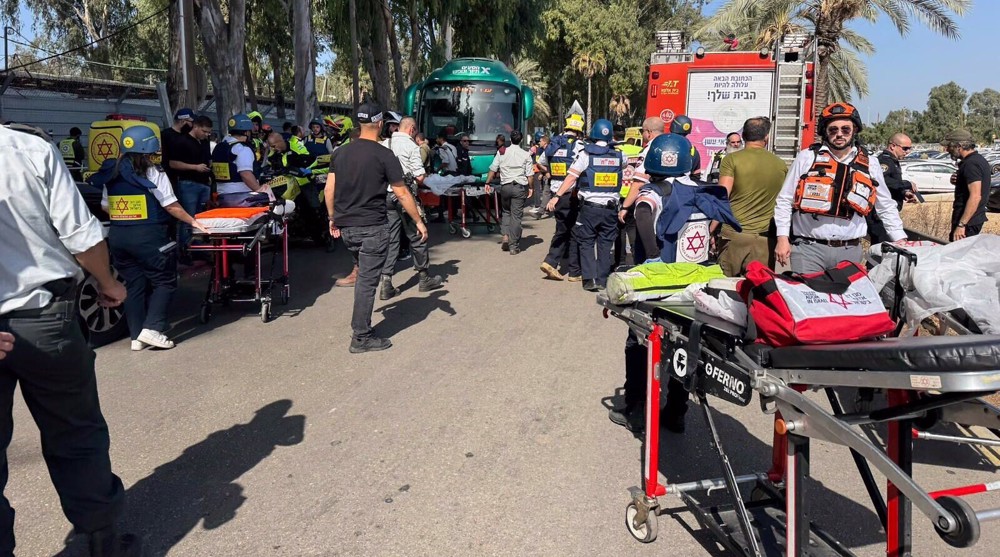


 This makes it easy to access the Press TV website
This makes it easy to access the Press TV website